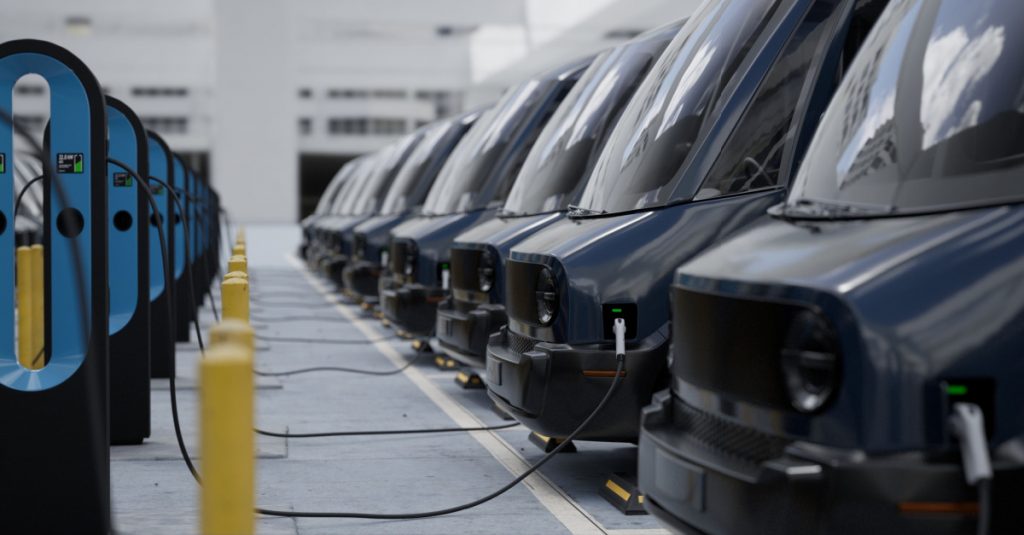
How Can Electrification And GPS Tracking Promote Sustainability Practices In The Logistics Sector?
In the United States, roughly 38.9 million registered trucks were used for all types of commercial businesses (besides farm and government) in 2020, according to American Trucking Associations. These fleets transported a range of goods between manufacturers, warehouses, distribution centres, retailers, and customers. With so many vehicles out on the road, sustainability becomes a vital issue for companies that own or operate a fleet. You want to ensure that trucks reach their destinations the fastest and safest way possible while reducing fuel usage and gas emissions. Two solutions that may benefit businesses pursuing sustainability practices are electrification and GPS tracking technologies.
Electrification for Trucking Fleets

A major concern for logisticians is the amount of fuel it takes to power trucking fleets for short- and long-distance hauls. With rising inflation and fuel costs, finding more cost-effective transportation solutions can help keep you within budget without impacting the performance of vehicles. You also can lower your company’s dependence on non-renewable energies.
Presently, more customers are aware of how their purchases impact the environment. They seek out companies that have operations which limit greenhouse gas emissions and waste that can harm the environment. These customers will only purchase from companies that lower their carbon footprints.
Vehicle electrification signifies an important step toward sustainability. Electrification refers to powering vehicles using renewable energies that can produce electricity. Types of resources include electric batteries and hydrogen fuel cells. Automotive manufacturers such as Volvo Group, Tesla, Daimler Trucks, Volkswagen, Nikola Motors and Toyota are further developing and testing different technologies to modify short-haul and long-haul vehicles with electrification investments.
Adopting the technology
Adoption of these technologies remains slow but is continuing to grow. Many trucking companies worry about whether present infrastructures are in place for charging electric trucks out on the road. States such as California and New York are actively encouraging and passing laws to help make the crossover from diesel-powered trucks to electric vehicles easier for companies. RMI’s analysis found that 49% of heavy-duty trucks and 65% of medium-duty trucks making short hauls could be replaced with electric trucks in these two states today.
Moving to electrification for your trucking fleets is one avenue to consider if you seek cost-effective ways to save fuel and lower gas emissions. Evaluating your vehicles’ energy needs, load curves and emissions and how these technologies may improve operations over time can allow you to figure out the best solutions when seeking sustainability practices.
GPS Tracking for Route Optimisation

While improving the efficiency of trucks is an ideal sustainability practice, there are additional technologies that can be combined with this solution. When looking at supply chains, some aspects that contribute to inefficiencies and harm to the environment are transportation disruptions and delays. Drivers have to deal with road construction, accidents, long waiting times for loading and unloading, and weather delays. These issues cause drivers to take longer routes or have longer idle times.
GPS trackers let you know what is happening with your fleet vehicles while on the road. These devices send real-time data signals from the vehicle to fleet management systems. This collected data may display the truck’s location, speed, vehicle diagnostics, ignition status and driving behaviour. The GPS devices also can relay notifications to the driver about route issues and possible traffic delays.
Using the data
How your company uses this data to improve operations can vary. The diagnostic information may inform you about potential vehicle issues. You can remove the vehicle from service immediately to perform maintenance and repairs. Location status data and speed information can help you better understand supply chain routes. You are able to modify trucking routes to ensure vehicles move more swiftly along roads with fewer delays.
Having technologies to improve vehicle operations and to place trucks on faster routes can help to reduce fuel consumption. The data can be used to adjust supply chain schedules to reduce idling at loading/unloading docks, speed up deliveries and lower gas emissions. You can improve supply chain management while also helping the environment by lowering waste.
Additional Benefits of Sustainable Practices to Businesses

The main benefits to sustainability are to protect the environment and prolong its natural resources for future generations. The manufacturing industry can also use sustainable practices in other ways to help companies thrive and grow. With efficient supply chains, you can find added cost-savings.
These cost savings can be used to expand operations and reach more consumers who need your products. You can also market your sustainability practices to customers to further your market brand. This positive brand marketing can make your company stand out from competitors, increasing profits and customer loyalty. You can show the community how much you care about the environment, creating customer satisfaction as well as an added incentive to buy to keep the charitable outreach going.
The advantages of sustainability can create a wealth of benefits to the industry.
Adopting technologies such as electrification of trucks and GPS tracking are two methods that can make this sector more environmentally friendly and efficient. The initial investment in these solutions can create long-term rewards. Not every company can make these changes overnight, depending on the size and complexity of operations. Evaluating your present operations can allow you to decide on what type of issue to tackle first, whether it is fuel consumption, supply chain delays or vehicle repairs.
Once you’ve gathered this information, you can select technologies that best fit your company and budget. You may select a technology that can cover several sustainability initiatives, such as GPS tracking, and then slowly introduce other technologies when feasible.
As more solutions are introduced and present technologies are streamlined, companies will be willing to invest and deploy these devices throughout their enterprises. This aspect will spur more competition between companies that offer these tech solutions, which may lower the initial investment costs. In addition, many local and state governments may offer tax incentives for companies to finally make the leap into adopting sustainability policies.
Author bio:
Robert Hall is President and Senior Engineer for Track Your Truck, a commercial vehicle GPS tracking company. He has extensive business experience in the wireless communications industry and focuses on RF system engineering, RF communications engineering, GPS tracking and IoT. He also has significant experience in software engineering and development, systems integration, server systems management, carrier operations, and business management.

If your business is taking strides to be more sustainable and reduce their environmental impact, The Sustain Chain Awards are a great way to receive global recognition for the work you are doing. Submit your FREE nomination today. Click Here.
